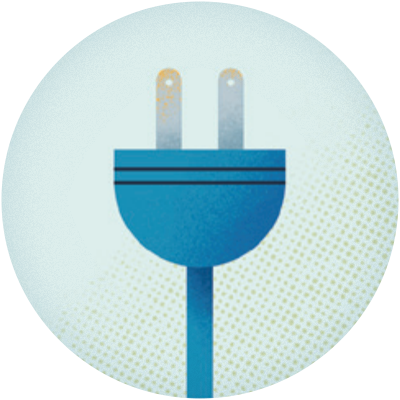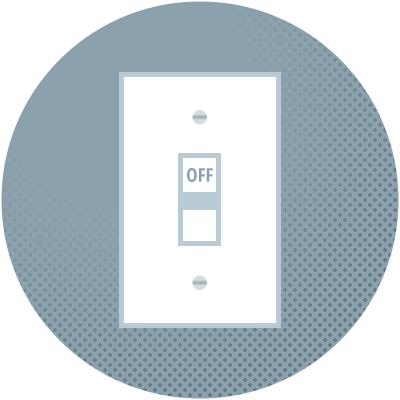
New England’s electricity consumers depend on a sophisticated power system composed of resources and transmission lines to produce and deliver electricity. To keep this system reliable, ISO New England maintains a constant balance of supply and demand. But when this balance is at risk for whatever reason—such as more consumer demand than available supply—the ISO takes a series of steps to avoid a more serious emergency. These steps include importing power from neighboring regions, using power system reserves, and asking consumers to reduce their electricity usage. When conditions allow, the ISO will call for businesses and residents to conserve as a way to avoid or limit the need for controlled power outages.
During extended periods of extreme cold, generators may have difficulty getting the fuel they need to produce electricity. Under these circumstances, ISO New England’s priority would be to stretch supplies of stored fuels, like oil and liquefied natural gas (LNG), until more fuel becomes available. Asking businesses and residents across New England to voluntarily conserve electricity will help extend the fuel supplies of these generators and their ability to generate electricity.
The call for voluntary conservation during a winter energy emergency would be different than what California consumers were asked to do in September 2022, when a brutal heat wave sent electricity demand to record highs. During a heat wave, consumers may be asked to reduce electricity usage over certain hours of the day. But here in New England, a call for conservation during a cold spell would likely be linked to a lack of fuel supplies and would require reduced electricity usage across all hours of the day, and for as many days as it takes for the weather to warm up or for additional fuel deliveries to arrive in the region.
If ISO New England calls for consumer conservation, anything you can do to reduce your electricity use will help—but you should never take actions that risk your health or safety.
If ISO New England calls for consumer conservation, anything you can do to reduce your electricity use will help—but you should never take actions that risk your health or safety. The best ways to conserve for extended periods are to lower your thermostat, turn off all unnecessary lights and electronics, and limit the use of electric appliances. Businesses should take all steps possible to conserve electricity, including reducing equipment and lighting use.
Set it as low as is comfortable when you’re home and awake. (We recommend 65 degrees.) When you’re asleep or out of the house, you can set it even lower. (We recommend 60 degrees.) If you have electric heat, setting a lower temperature reduces demand on the electric grid. If you heat with natural gas, turning down the heat can help reduce the demand for natural gas in the region and potentially free up more of that resource for the generation of electricity.

This is the easiest way to conserve electricity and keep your electric bill low—not just during an energy emergency, but also year-round. When you leave a room, make sure to turn off the lights. You should also turn off other appliances and electronics like TVs and fans when you’re not using them.
Many devices continue to draw electricity even when they’re not in use or turned off. To help save every last bit of energy, unplug TVs, computers, printers, video game consoles, and microwaves. Also, if the power goes out, having them unplugged will ensure there’s no surge when power is restored.
Electric stoves use a lot of energy. Use appliances that consume less, like the microwave or an electric kettle, to cook and boil water.
Your washer, dryer, and dishwasher all use a lot of electricity. To conserve, put off doing laundry or washing dishes as long as you can.
Electric water heaters use a lot of energy. Taking short showers and washing your hands with cold water will help conserve. You can also turn down the temperature setting on the water heater itself. The recommended temperature is 120 degrees.
Keep curtains and shades, particularly those on southern-facing windows, open during the day to take advantage of heat from the sun. Keep curtains closed at night to keep out the chill.